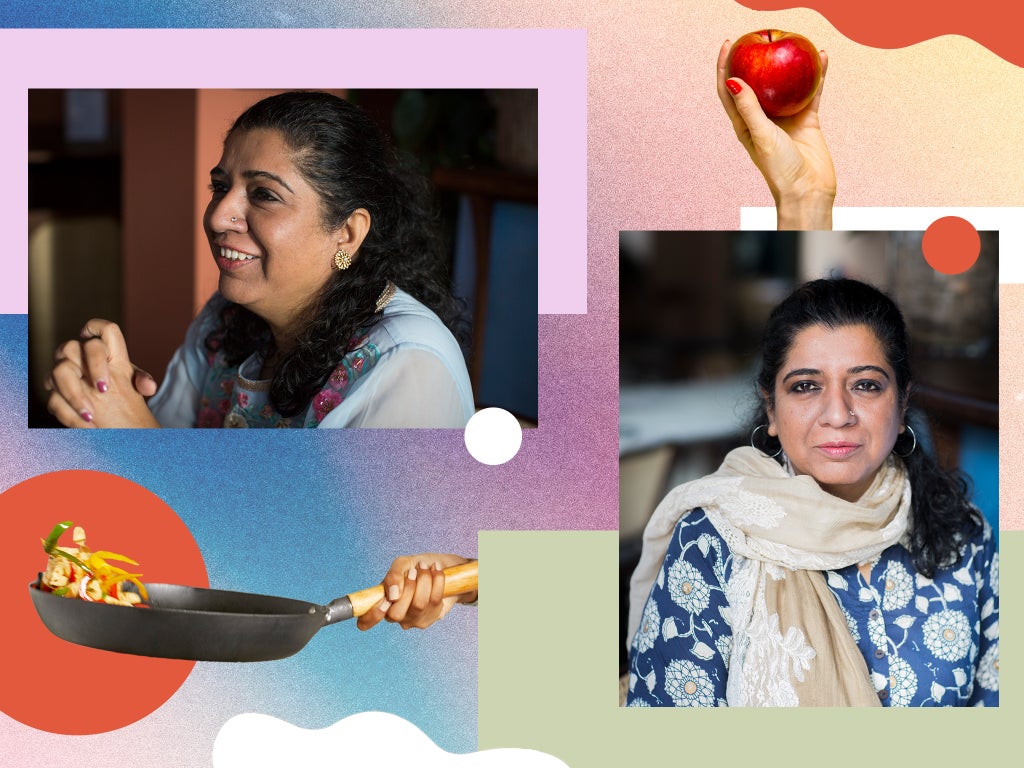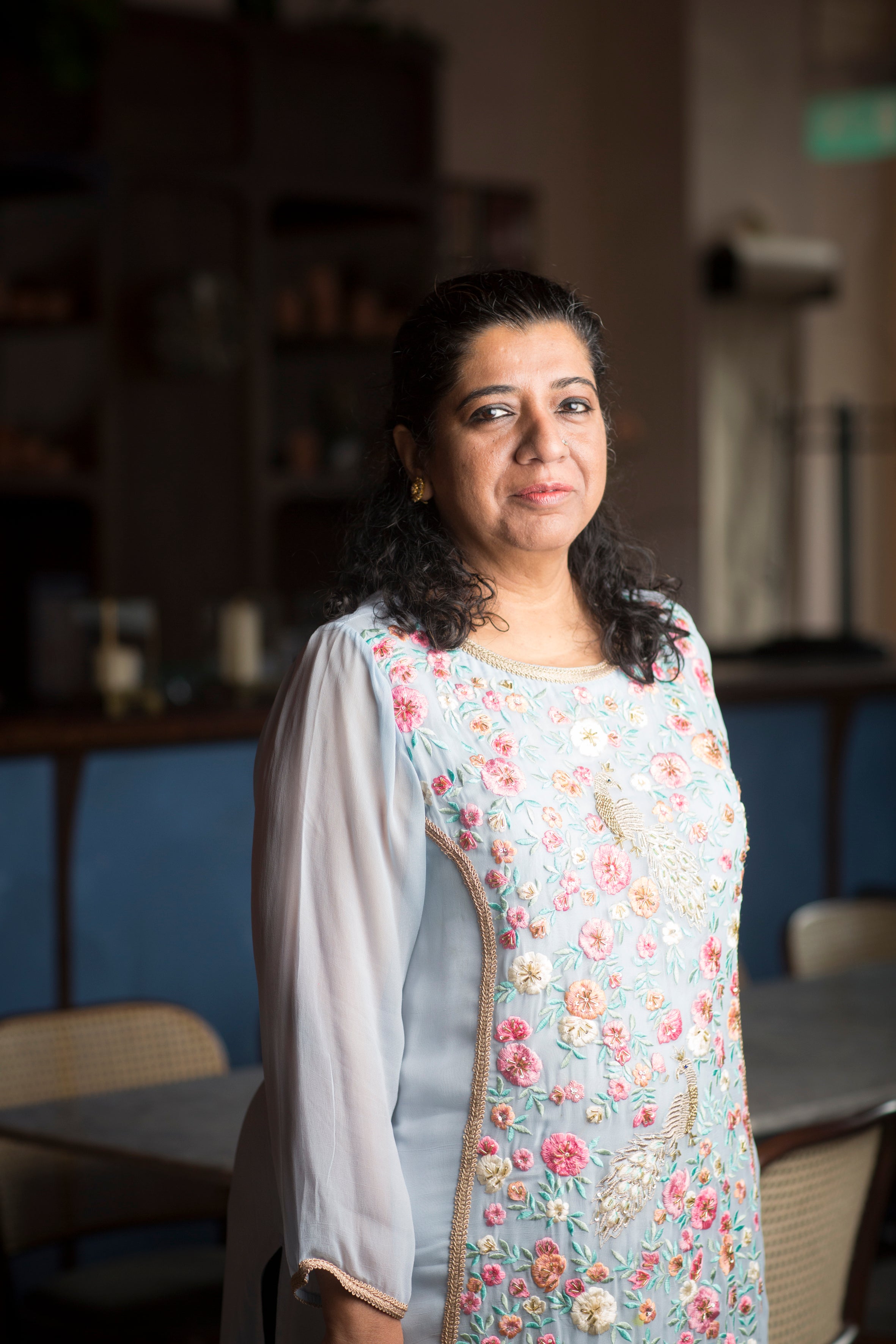
The timeline of Darjeeling Express isn’t necessarily an unconventional one. A talented chef begins doing supper clubs, they unsurprisingly take off in popularity and said chef goes on to set up a permanent, bricks and mortar restaurant. But it is not Asma Khan’s journey that makes her, and by extension, her restaurant, so special - it’s the story behind Darjeeling Express and who Khan is as a person that sets it out from the rest.
Khan took time out her busy schedule to talk to us about her unique journey ahead of her appearance at the first Santa Fe Literary Festival being held in May. Along side Khan, other high-profile authors such as Margaret Atwood, John Grisham, Asma Khan, and Jonn Krakauer, add to the significant depth and breadth of the line-up of the festival.
Albeit, when Khan started cooking for the public in 2012, pop ups and supper clubs weren’t the dime a dozen dining experiences you see now - Darjeeling Express was special in that way, but also, in so much more than that. “The restaurants were castles that you couldn’t get into, you know, nobody’s gonna drop the drawbridge for you to enter.”
Khan tells me, “So, you know, I heard about supper clubs, I thought, you know, I’m gonna cook. What gave me the greatest pleasure was not cooking, but feeding people.” And feed people she did. The early days of Darjeeling Express saw Khan put these supper clubs on for free in her home, donating any profits to Action Against Hunger. “I lacked confidence. I didn’t think people would pay to eat my food, but they would pay and the entire money I’d give to charity,” says Khan.
You need to go into the kitchen, however, to see what sets Darjeeling Express apart from other restaurants: it is entirely staffed by women who haven’t had an ounce of formal culinary training. “I would have happily worked with men. If men knew how to cook the way I did,” says Khan. “The problem is that you know, in every home you go to in the subcontinent; India, Pakistan, Bangladesh, Sri Lanka, invariably it’s a woman cooking at home. In every restaurant, you go to in India, Pakistan, Bangladesh and Sri Lanka in the West, which is middle income range and higher and fine dining, it’s all men.”

There is a kind of magic to the way the food is cooked at Darjeeling Express, something that comes not just from the concentration of gender in the kitchen, but from decades - even centuries - of culinary history playing out in a professional environment.
“There’s a rhythm. There’s an age old rhythm in how these women cook and in my culture. That’s the rhythm of what I cook; this is the rhythm of these women, and this is the rhythm of my kitchen today,” explains Khan. “It just proves that you can be in a place like this, and have this traditional ancient rhythm of cooking that only women did in my culture, where there’s a kind of almost a beat. No one is giving instructions. No one’s shouting at each other. Everyone is watching. They know things already from the aroma that is coming from the spices. They know where it is. They know exactly where that dish is and when it needs to be intervened. When you need to go there, when you need to stir it. Everything.”
There is a note of pain in Khan’s voice when she touches on the importance of the historical context of the way her food is cooked, and the impact of the way the kitchen is run “The fact that so many women went to their graves thinking they’re not skilled. My heart hurts for that. Because their food was taken for granted. The food was just consumed. And people forgot to thank them. We are the uncelebrated and unapplauded,” She says. “I want to highlight how powerful a force it is, when women cook together. We are a collective, we work as a collective, there’s no hierarchy, there’s no shouting, there’s no screaming, there is no shaming of people.”
Khan’s professional life didn’t begin in food. She graduated with a PHD in law (“I never call myself a chef. I always call myself a cook. If I wanted to be really pompous, I’d call myself a doctor. Because I do have a PhD.”) and quickly realised the system was built against enacting the change she wanted to work towards, the idea that drew her to the profession in the first place.
“That’s the story of a lot of women; we end up doing things, studying things following careers, because that’s what was expected from us,” Khan tells me. “I think everyone was quite appalled at what they thought was me abandoning the law.But, you know, at some point, I thought, No. I wanted to break free from the labeling of women. And the fact that you do things to please others. So many women do. They set fire to themselves to warm others. And I wasn’t going to do that, I wanted to do something. I wanted to find a path that I felt, you know, was mine, that I owned it.”
This desire to change hasn’t exactly dissipated, it’s just been redirected. Khan is a vocal advocate on social media, particularly around the allegations of abuse, racism and sexism in restaurant kitchens that have come out with increasing frequency.
“I don’t want to be on the wrong side of history,” she tells me “You know, you need one woman on the bus to say, I’m not getting off. Segregation ended, slavery ended, apartheid ended. You know, because somebody was brave. And somebody decided not to be silent. I want to be that somebody, I want to be on the right side of history. The fact that other people are keeping silent when they can obviously see that there is a problem when Michelin star chefs and female chefs keep quiet. When there’s evidence of bullying against women, where there’s evidence of racism. Where there’s violence, you know, I can tell you as a lawyer, if you did this outside the kitchen, you’d be in jail. The terms of assault are very clear. When touching is without consent. It’s assault. How’s it being allowed in kitchens? It’s being allowed by a conspiracy of silence. I will not die till that has changed.”
Ten years into its life, Darjeeling Express has gone from strength to strength. The restaurant moved to a new, bigger space - the former Pizza Express flagship - in Covent Garden in the middle of the pandemic, and has remained fully booked ever since. It went viral in 2021 when a photo of Khan with actors Paul Rudd and Dan Levy was posted on the restaurant’s Instagram, and subsequently mentioned in an interview with Levy on the tv show Jimmy Kimmel Live. It was already nearly impossible to get a table at Darjeeling Express, but this incident sent bookings through the roof.
Not that it’s always been smooth sailing. Despite being booked years in advance and continuing to turn a profit, when Khan was looking to expand to a new location she told me that it was nearly impossible to get a viewing.
“I had been looking to move out for a long time. I didn’t have a very good experience, because not a single landlord showed me anything. And the one who did show me something just before the pandemic became really bad. The landlord changed their mind, because the neighbor decided they didn’t want me there. The neighboring restaurant objected to me being there,” she says.
“It’s awful. It is sexism. this is not about the color of my skin. I think I could have been anything. You know, I could have been anything. The moment I came across as a sole female founder, without venture capitalist money, without men in suits, greatly white men in suits, without that stamp of, you know, oh, she’s gonna be okay. No one was willing to show me a site, forget about, you know, negotiating with me. I wasn’t even shown a site.”
The pandemic undeniably changed the playing field. Restaurants were failing across London and landlords were desperate for somebody, anybody to pay the rent. Suddenly, the profitable Darjeeling Express with it’s female founder became a worthwhile tenant. “I had to wait for men to fail,” says Khan.
“I had to wait for big brands to fail, for me to get a place like this. But I’m grateful. I’ll take it. I take it not as a victory for myself. But I want other women to know; look at what happened to us. Look at the size of the space. We’re in a grade two listed building in a flagship restaurant in Covent Garden moving from a really small place. You know, dream big, start small. If there is no chair at the table for you, pull up a chair, sit down, ask to be respected because what I told the landlord is that, now that the pandemic has come, and all the pieces have been rearranged, and the chessboard is clear. I come back as queen.”
The inaugural Santa Fe Literary Festival will be taking place between 20-23 May 2022. The four-day event is set to explore issues at a time of extraordinary change – in politics, race, immigration, the environment, and more. The Independent, as the event’s international media partner, will be providing coverage across each day of the festival as well as during the lead up with exclusive interviews with some of the headline authors. For more on the festival visit our Santa Fe Literary Festival section or visit the festival’s website here. To find out more about buying tickets click here.







